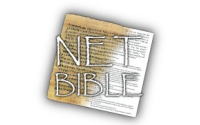May 28 – 1 Kings 9 and 10 from the Old Testament
1 Kings 9 and 10 – The Lord Gives Solomon a Promise and a Warning
9:1 After Solomon finished building the Lord’s temple, the royal palace, and all the other construction projects he had planned, 9:2 the Lord appeared to Solomon a second time, in the same way he had appeared to him at Gibeon. 9:3 The Lord said to him, “I have answered your prayer and your request for help that you made to me. I have consecrated this temple you built by making it my permanent home; I will be constantly present there. 9:4 You must serve me with integrity and sincerity, just as your father David did. Do everything I commanded and obey my rules and regulations. 9:5 Then I will allow your dynasty to rule over Israel permanently, just as I promised your father David, ‘You will not fail to have a successor on the throne of Israel.’
9:6 “But if you or your sons ever turn away from me, fail to obey the regulations and rules I instructed you to keep, and decide to serve and worship other gods, 9:7 then I will remove Israel from the land I have given them, I will abandon this temple I have consecrated with my presence, and Israel will be mocked and ridiculed among all the nations. 9:8 This temple will become a heap of ruins; everyone who passes by it will be shocked and will hiss out their scorn, saying, ‘Why did the Lord do this to this land and this temple?’ 9:9 Others will then answer, ‘Because they abandoned the Lord their God, who led their ancestors out of Egypt. They embraced other gods whom they worshiped and served. That is why the Lord has brought all this disaster down on them.’”
Foreign Affairs and Building Projects
9:10 After twenty years, during which Solomon built the Lord’s temple and the royal palace, 9:11 King Solomon gave King Hiram of Tyre twenty cities in the region of Galilee, because Hiram had supplied Solomon with cedars, evergreens, and all the gold he wanted. 9:12 When Hiram went out from Tyre to inspect the cities Solomon had given him, he was not pleased with them. 9:13 Hiram asked, “Why did you give me these cities, my friend?” He called that area the region of Cabul, a name which it has retained to this day. 9:14 Hiram had sent to the king one hundred twenty talents of gold.
9:15 Here are the details concerning the work crews King Solomon conscripted to build the Lord’s temple, his palace, the terrace, the wall of Jerusalem, and the cities of Hazor, Megiddo, and Gezer. 9:16 (Pharaoh, king of Egypt, had attacked and captured Gezer. He burned it and killed the Canaanites who lived in the city. He gave it as a wedding present to his daughter, who had married Solomon.) 9:17 Solomon built up Gezer, lower Beth Horon, 9:18 Baalath, Tadmor in the wilderness, 9:19 all the storage cities that belonged to him, and the cities where chariots and horses were kept. He built whatever he wanted in Jerusalem, Lebanon, and throughout his entire kingdom. 9:20 Now several non-Israelite peoples were left in the land after the conquest of Joshua, including the Amorites, Hittites, Perizzites, Hivites, and Jebusites. 9:21 Their descendants remained in the land (the Israelites were unable to wipe them out completely). Solomon conscripted them for his work crews, and they continue in that role to this very day. 9:22 Solomon did not assign Israelites to these work crews; the Israelites served as his soldiers, attendants, officers, charioteers, and commanders of his chariot forces. 9:23 These men were also in charge of Solomon’s work projects; there were a total of 550 men who supervised the workers. 9:24 Solomon built the terrace as soon as Pharaoh’s daughter moved up from the city of David to the palace Solomon built for her.
9:25 Three times a year Solomon offered burnt offerings and peace offerings on the altar he had built for the Lord, burning incense along with them before the Lord. He made the temple his official worship place.
9:26 King Solomon also built ships in Ezion Geber, which is located near Elat in the land of Edom, on the shore of the Red Sea. 9:27 Hiram sent his fleet and some of his sailors, who were well acquainted with the sea, to serve with Solomon’s men. 9:28 They sailed to Ophir, took from there four hundred twenty talents of gold, and then brought them to King Solomon.
Solomon Entertains a Queen
10:1 When the queen of Sheba heard about Solomon, she came to challenge him with difficult questions. 10:2 She arrived in Jerusalem with a great display of pomp, bringing with her camels carrying spices, a very large quantity of gold, and precious gems. She visited Solomon and discussed with him everything that was on her mind. 10:3 Solomon answered all her questions; there was no question too complex for the king. 10:4 When the queen of Sheba saw for herself Solomon’s extensive wisdom, the palace he had built, 10:5 the food in his banquet hall, his servants and attendants, their robes, his cupbearers, and his burnt offerings which he presented in the Lord’s temple, she was amazed. 10:6 She said to the king, “The report I heard in my own country about your wise sayings and insight was true! 10:7 I did not believe these things until I came and saw them with my own eyes. Indeed, I didn’t hear even half the story! Your wisdom and wealth surpass what was reported to me. 10:8 Your attendants, who stand before you at all times and hear your wise sayings, are truly happy! 10:9 May the Lord your God be praised because he favored you by placing you on the throne of Israel! Because of the Lord’s eternal love for Israel, he made you king so you could make just and right decisions.” 10:10 She gave the king 120 talents of gold, a very large quantity of spices, and precious gems. The quantity of spices the queen of Sheba gave King Solomon has never been matched. 10:11 (Hiram’s fleet, which carried gold from Ophir, also brought from Ophir a very large quantity of fine timber and precious gems. 10:12 With the timber the king made supports for the Lord’s temple and for the royal palace and stringed instruments for the musicians. No one has seen so much of this fine timber to this very day.) 10:13 King Solomon gave the queen of Sheba everything she requested, besides what he had freely offered her. Then she left and returned to her homeland with her attendants.
Solomon’s Wealth
10:14 Solomon received 666 talents of gold per year, 10:15 besides what he collected from the merchants, traders, Arabian kings, and governors of the land. 10:16 King Solomon made two hundred large shields of hammered gold; 600 measures of gold were used for each shield. 10:17 He also made three hundred small shields of hammered gold; three minas of gold were used for each of these shields. The king placed them in the Palace of the LebanonForest.
10:18 The king made a large throne decorated with ivory and overlaid it with pure gold. 10:19 There were six steps leading up to the throne, and the back of it was rounded on top. The throne had two armrests with a statue of a lion standing on each side. 10:20 There were twelve statues of lions on the six steps, one lion at each end of each step. There was nothing like it in any other kingdom.
10:21 All of King Solomon’s cups were made of gold, and all the household items in the Palace of the Lebanon Forest were made of pure gold. There were no silver items, for silver was not considered very valuable in Solomon’s time. 10:22 Along with Hiram’s fleet, the king had a fleet of large merchant ships that sailed the sea. Once every three years the fleet came into port with cargoes of gold, silver, ivory, apes, and peacocks.
10:23 King Solomon was wealthier and wiser than any of the kings of the earth. 10:24 Everyone in the world wanted to visit Solomon to see him display his God-given wisdom. 10:25 Year after year visitors brought their gifts, which included items of silver, items of gold, clothes, perfume, spices, horses, and mules.
10:26 Solomon accumulated chariots and horses. He had 1,400 chariots and 12,000 horses. He kept them in assigned cities and in Jerusalem. 10:27 The king made silver as plentiful in Jerusalem as stones; cedar was as plentiful as sycamore fig trees are in the lowlands. 10:28 Solomon acquired his horses from Egypt and from Que; the king’s traders purchased them from Que. 10:29 They paid 600 silver pieces for each chariot from Egypt and 150 silver pieces for each horse. They also sold chariots and horses to all the kings of the Hittites and to the kings of Syria.




